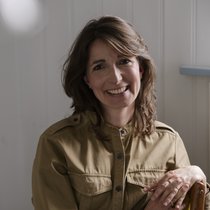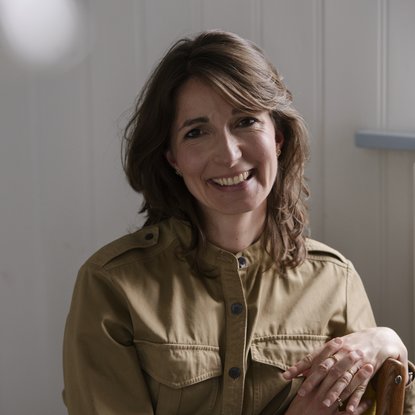Something exciting happened in 2025 at Pakhuis de Zwijger in Amsterdam: the start of a movement. More than 120 women gathered around fifteen "kitchen tables" to discuss who gets to shape the future of food in one of Europe's most diverse cities.
May 27 was the official launch of Women on Food, a movement that's now turning Amsterdam's food transition upside down by asking a deceptively simple question: What if the women who've been feeding this city all along actually had a say in its food policies?
More than a Meeting: A Movement Takes Root
The setup was intentional—no stages, no keynote speakers—just tables themed around the real-world intersections of food and life. At one table, women explored "Food as Medicine," drawing on traditions of herbs and healing passed down through generations. At another, "Decolonizing Food" sparked frank discussions about how colonial legacies still shape what Amsterdam eats. The "Urban Agriculture and Land" table tackled questions of access and ownership. At the same time, "Culinary Identity and Heritage" asked what it means to be "Amsterdams" in a city where over 180 nationalities call home.
"During the launch of Women on Food, I saw so many inspiring women. Very powerful. With so much positive energy, and they all feel a necessity to change our food system, each woman in her own way," recalls Nadia Zerouali, cookbook author, hospitality entrepreneur, and one of the movement's three founders.
These weren't abstract policy conversations. Women shared stories of feeding families on tight budgets, growing vegetables that reminded them of home, and building businesses around recipes their grandmothers taught them. The organizers collected these stories, sketches, and reflections into what they call "the menu"—a document that serves as both record and roadmap (OpenResearch Amsterdam, 2025).
Why Women? Why Now?
Amsterdam loves to celebrate its culinary diversity and rich migration history, but here's the uncomfortable truth: the city's transition to healthier, more sustainable food overwhelmingly benefits its affluent, less diverse neighborhoods. Meanwhile, areas like Nieuw-West, Zuidoost, and Noord—where many migrant families live—face higher levels of food insecurity and unhealthier food environments.
The statistics are sobering. Nearly 70,000 Amsterdam households live in poverty, and more than 25,000 cannot afford healthy meals regularly. In fact, more than one in three low-income households regularly struggles to put nutritious food on the table. Meanwhile, 84 percent of food suppliers mainly offer unhealthy products, and over half of Amsterdammers consume unhealthy fast food at least once a week (City of Amsterdam, 2025).
Yet at the same time, women—particularly women from migrant communities—are already innovating. They run food businesses, organize community kitchens, cultivate urban gardens, and pass down knowledge about nutrition, preservation, and cooking that spans continents and generations. However, their expertise goes unrecognized, mainly in policy circles.
"Amsterdam houses an amazing range and depth of food knowledge—and we urgently need this knowledge to create a different food future," explains Antonia Weiss, Research Fellow at AMS Institute and Postdoctoral Researcher at Wageningen University & Research, who co-founded Women on Food alongside Zerouali and Loes Leatemia, former Food Strategy program manager for Amsterdam Municipality. "Everyone eats, everyone cooks, everyone shops for groceries. And that's exactly why it's so important to have everyone at the table when we talk about the future of food in our city."
From Kitchen Tables to Policy Tables
The three founders represent a powerful convergence: practice (Zerouali), policy (Leatemia), and research (Weiss). Their vision is clear—position women as changemakers in the food world, ensuring that the transition to sustainable food doesn't erase cultural heritage but builds upon it.
Women on Food operates across three strategic domains:
Practice: Supporting women's everyday foodwork, activism, and entrepreneurship—recognizing that food labor, predominantly performed by women and much of it unpaid, is essential infrastructure that cities depend on.
Influence: Engaging policymakers and academics to ensure diverse culinary cultures are recognized in public procurement, funding decisions, and research agendas historically centered on Western food traditions.
Visibility: Amplifying stories and generating awareness to make women's food expertise more visible, particularly highlighting non-Western food cultures that have shaped Amsterdam's culinary landscape.
This approach represents a fundamental shift from top-down food policy to co-creation. What makes the network unique is its transdisciplinary way of working: bringing together women from all parts of the food system. As Women on Food, they want to "be" the food system. What is innovative is the co-creation with diversity in the city and inclusivity on a topic about regenerative economics and sustainability issues.
The Temporal Layers of Food Culture
Weiss's research project, "Towards a Deep Foodscape: Cultivating Plants, Cuisines, and Histories," provides the academic foundation for this work. In places like Wereldgroentetuinen, a converted commercial greenhouse in Nieuw-West, she documents how gardeners hailing from diverse cultures cultivate Surinamese sopropo (bitter gourd) alongside Turkish cucumbers and how Madame Jeanette peppers flourish next to Moroccan mint.
But this isn't just about exotic vegetables in unexpected places. Weiss uses sociological and historical methods to understand gardening knowledge in its biographical context—connecting what people grow to their life stories, migration journeys, and cultural identities (OpenResearch Amsterdam, 2024).
The concept of a "deep foodscape" acknowledges the temporal layers of food culture—how successive generations of migrants and their evolving food practices shape past, present, and future food environments. It's an approach that recognizes policymakers routinely fail to consider the past when crafting supposedly sustainable food futures.
"These women carry seed libraries in their memories," Weiss observes. When mothers share knowledge of bitter melon cultivation, they're not just preserving culture but creating resilient food systems that can adapt to climate change and urban constraints.
Table discussion at the launch event
The Future of the City’s Food Transition
Zita Pels, Amsterdam’s Deputy Mayor overseeing sustainability, energy transition, and circular economy, recognizes what's at stake: "How do we ensure that we can still feed our city in the future? Women on Food is incredibly important for the city and Amsterdam because women have a creative force that they regularly demonstrate in the kitchen. And we must celebrate and center that force, because I believe that women in the kitchen, in food, and much more broadly, can make a fantastic contribution to changing the world into a more pleasant place."
Amsterdam's Food Strategy commits to transforming the local food system with ambitious targets: reducing food waste by 30 percent by 2026 and 50 percent by 2030, while cutting CO2 emissions by 60% by 2030 compared to 1990 (City of Amsterdam, 2025). The city also boasts over 600 food initiatives and over 200 urban agriculture projects.
But as Leatemia emphasizes, maintaining political momentum is critical: "The food stories we gained during the movement's kick off make it so wonderful. This topic has so many connections to being human, to humanity... The municipal elections in March 2026 are coming, and as Women on Food, we want to get on the political agenda in Amsterdam."
“The future of food isn't just about what we grow or how we distribute it, but about whose knowledge we value and whose voices we amplify.”
Antonia Weiss
Research Fellow
What Comes Next
Women on Food is formalizing as a foundation with plans for monthly meetings and annual gatherings to foster collaboration. Ideas are being shaped: a cookbook showcasing Amsterdam's cultural diversity, support for creating a culinary institute, development of school education packages, and a broader research agenda on gender and food in multicultural cities. Women on Food also works to improve access to catering contracts with large companies and employers through public procurement.
The movement's intersectional approach recognizes that food justice can't be separated from gender equity, immigrant rights, anti-poverty activism, environmental sustainability, and economic development. At AMS Institute, this aligns perfectly with our mission to develop interdisciplinary metropolitan solutions that are resilient, regenerative, and just.
The implications extend far beyond Amsterdam. As cities worldwide grapple with food insecurity, climate change, gender inequities, and cultural integration, Women on Food offers a replicable framework that honors diversity, sustainability, tradition, and emancipation. It demonstrates that connecting the fight for women's rights and gender equity to the food transition is a symbiotic ingredient in any recipe for urban transformation.
A Future Worth Tasting
The women gathering around those kitchen tables at Pakhuis de Zwijger understand something that policy documents often miss: food is never just about nutrition or environmental impact. It's about identity, memory, community, and power. It's about who gets to decide what a "sustainable" food system looks like and whose knowledge counts as expertise.
As Weiss puts it, "The future of food isn't just about what we grow or how we distribute it, but about whose knowledge we value and whose voices we amplify."
The women cultivating change in Amsterdam's greenhouses, community gardens, and kitchen tables aren't just growing food—they're growing a more inclusive, sustainable, and delicious future for everyone.
And that's a recipe worth sharing.
Get Involved
Women on Food welcomes new participants and collaborators, especially those based in Amsterdam. Anyone interested in contributing to this movement can reach out via info@womenonfood.nl. The May 2025 gathering was just the beginning—plans for expanded programming and deeper community engagement are underway.
For research collaborations or to explore how AMS Institute can support similar initiatives, visit our Metropolitan Food Systems program.
Further Reading & Resources
Women on Food:
- Launch Event Report (Dutch) - OpenResearch Amsterdam
- Watch: Women on Food Video (Dutch) - YouTube
Research:
- Tuinieren in Nieuw West: Cultural Food Heritage Research by Dr. Antonia Weiss - OpenResearch Amsterdam
- Parool article (Dutch): https://www.parool.nl/ps/in-deze-amsterdamse-tuintjes-worden-tropische-gewassen-verbouwd-bij-de-toko-zijn-die-groenten-ze-superduur~b70f5a17/
- Radio item from BNN Vara (broadcasted on 10 October 2025)
- Shaping the Multicultural City: Gardening Know-How and Culinary Heritage - AMS Institute
Policy:
- Amsterdam Food Strategy - City of Amsterdam
- Opinion: Why Amsterdam Must Continue Its Food Strategy (Dutch) - Het Parool, by WUR and AMS Institute researchers

